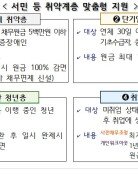Trump’s aide: Possibility of conflict with U.S. in Korea’s platform regulation
Trump’s aide: Possibility of conflict with U.S. in Korea’s platform regulation
Posted December. 30, 2023 07:57,
Updated December. 30, 2023 07:57

Former White House National Security Advisor Robert O'Brien, a close associate of former U.S. President Donald Trump, has strongly criticized the Fair Trade Commission's "Platform Fair Competition Promotion Act." He referred to it as "a regulation that is detrimental to the United States but a gift to the Chinese Communist Party." O'Brien's concern stems from the likelihood that large American information technology (IT) companies, such as Google, which hold a significant market share in Korea, could be subjected to regulation under this law. In contrast, Chinese IT companies such as TikTok and Alibaba may not be included. O'Brien, who is considered a potential Secretary of State if former President Trump returns to power, is regarded as having considerable influence, amplifying the significance of his remarks.
On Thursday (local time), former aide O'Brien contributed to The Hill, a media outlet specializing in Congress, stating, "President Yoon Suk Yeol and the National Assembly must carefully review the secondary and tertiary impacts on relations with the United States, the digital economy, etc., before pushing ahead with the passage of the bill." This law identifies several large platform companies as 'dominant operators' and prohibits actions that interfere with fair competition, such as providing preferential treatment to their services and imposing restrictions on competing platforms. Industry experts predict that major U.S. big tech companies, as well as Naver and Kakao, could be classified as 'dominant operators.' Former aide O'Brien contends that subjecting both Korean and American big tech companies to regulation, as indicated by this law, could disproportionately benefit Chinese big tech companies with relatively low market share in Korea.
"The Chinese Communist Party is putting the security of Korea and the United States at risk by using its own companies to collect user information," O’Brian stated, expressing concern. In this context, he warned that implementing a law explicitly targeting American companies could lead to unnecessary friction between Washington and Seoul. He further emphasized the worrisome aspect that such friction would arise at a time when the ROK-US relationship holds particular significance for maintaining security and economic prosperity in the Indo-Pacific.
asap@donga.com






